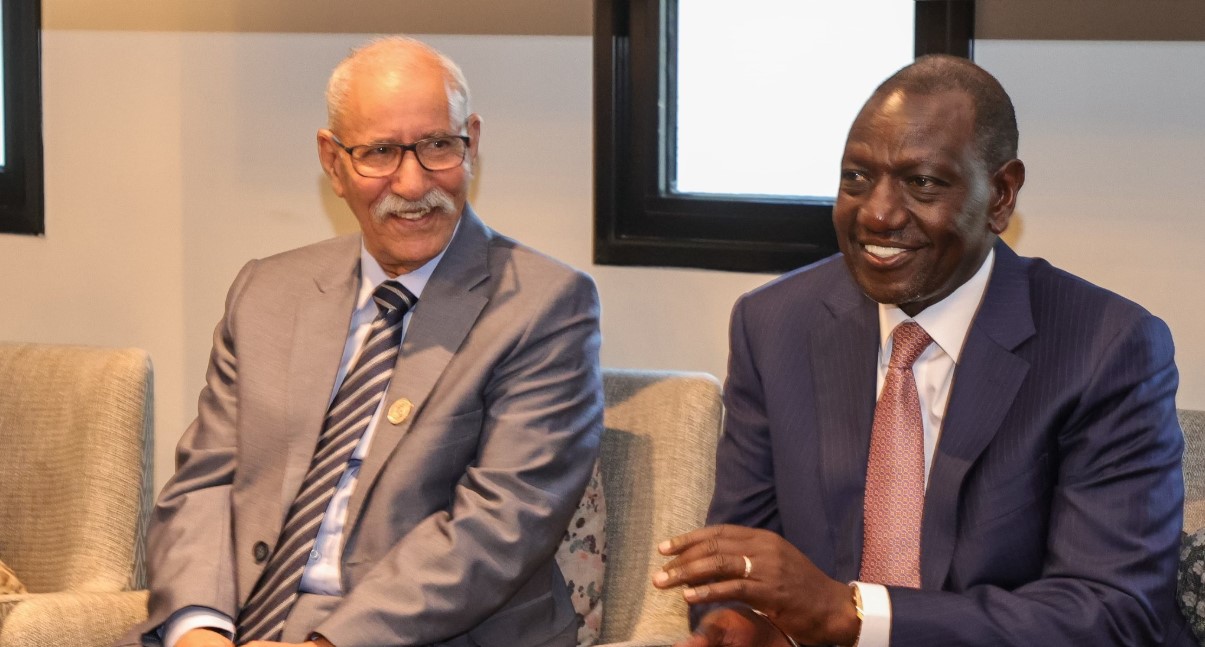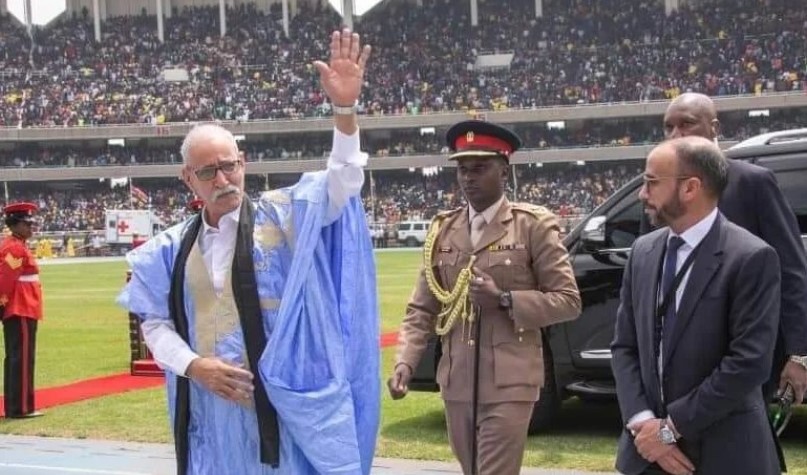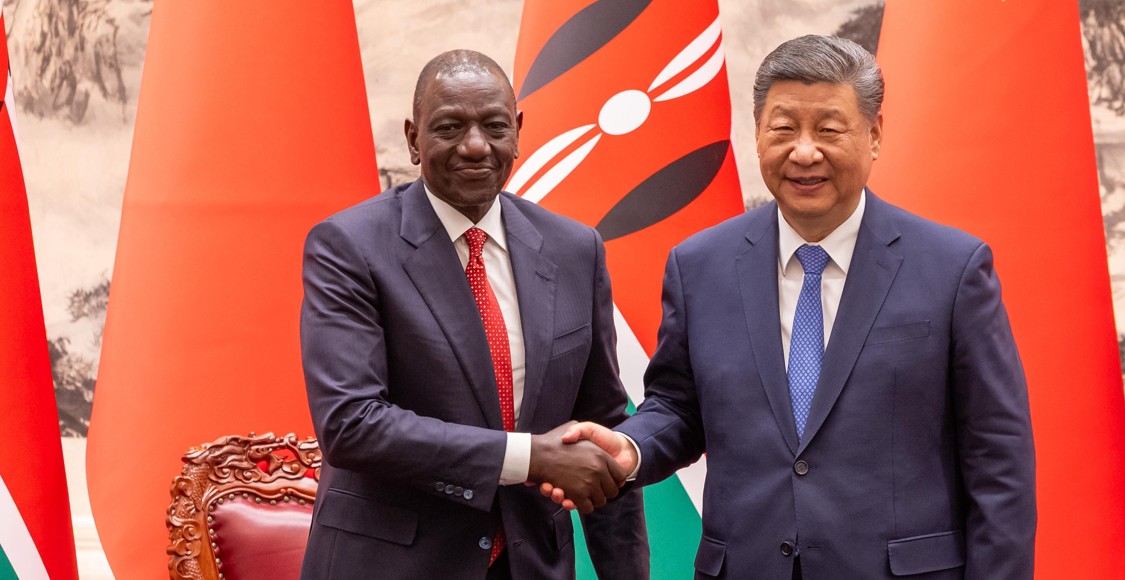Kenya dodges Western Sahara stance, reaffirms One-China Policy in new foreign blueprint

As Ruto courts global partnerships, Nairobi's diplomatic pragmatism risks fraying the solidarity it once championed in Africa's unfinished decolonisation struggles.
Kenya's newly approved Sessional Paper No. 1 of 2025 on Foreign Policy dodges taking a firm, explicit stand on the Western Sahara dispute, even as it firmly reaffirms the One-China Policy, signalling a careful balancing act between major geopolitical sensitivities and Nairobi's evolving diplomatic posture.
According to the document, Kenya "affirms its adherence to the One China Policy," a longstanding Chinese diplomatic precondition that rejects recognition of Taiwan as an independent state.
More To Read
- Legal storm brews over Kenya’s cyber law as petitioners cry foul on privacy and expression
- TIFA survey: UDA most popular party at 16 per cent, ODM second with 13 per cent
- Three years of William Ruto: The successes and failures shaping his legacy as president
- State House faults 'The Economist' over editorial on Kenya's authoritarian drift
- President William Ruto reinstates Charles Nyachae to Kenya School of Government post
- Report reveals State House blew Sh1 billion on local travel in nine months
"Kenya adheres to the One China Policy, which recognises that there is only one sovereign state under the name China, with Beijing as its capital," the paper states.
By reiterating this position, Kenya underscores the political reality that no country can expect to enjoy the largesse of Chinese loans, investments, and Belt and Road Initiative (BRI) projects without unequivocally supporting China's territorial claims.
However, when it comes to Western Sahara — Africa's last major colonial dispute — Kenya's foreign policy takes a more evasive approach.
"Kenya supports the inalienable right of all peoples to self-determination, including the people of Western Sahara, and advocates for a just, lasting, and mutually acceptable political solution consistent with the relevant United Nations and African Union decisions," the policy paper says.
Ambiguous phrasing
This ambiguous phrasing avoids direct mention of recognising the Sahrawi Arab Democratic Republic (SADR) as a sovereign state — a subtle but deliberate dodge.
The International Relations Society of Kenya (IRSK) had proposed that Kenya's foreign policy should explicitly state that it supports the African Union's position on Western Sahara (SADR).
The historical context of this issue matters.
Kenya has traditionally recognised Western Sahara's right to self-determination, hosting SADR President Brahim Ghali on multiple occasions.
However, upon assuming office, President William Ruto caused controversy when he attempted, via a tweet, to "reverse" Kenya's recognition of SADR in favour of closer ties with Morocco.
 Sahrawi Arab Democratic Republic President Brahim Ghali arrives for President Ruto’s inauguration on September 13, 2022. (Photo: Courtesy)
Sahrawi Arab Democratic Republic President Brahim Ghali arrives for President Ruto’s inauguration on September 13, 2022. (Photo: Courtesy)
Diplomatic backtrack
The backlash from domestic audiences and AU member states forced a diplomatic backtrack, but the episode revealed Nairobi's transactional recalibration under Ruto's leadership.
Other Topics To Read
In 2023, Kenya even quietly recalled its ambassador to SADR, Peter Katana Angore, with Principal Secretary Korir Sing'Oei stating that the post held "little strategic commercial value".
Katana, Kenya's former envoy to Algeria, presented credentials to Western Sahara leader Brahim Ghali in May 2022.
This was the first accreditation of a Kenyan diplomat to Western Sahara.
"Kenya has always stood in solidarity with the Sahrawi people in their quest for independence," he said at the time.
Held in high esteem
As a founding member of the Organisation of African Unity, now called the African Union, Western Sahara is held in high esteem by the majority of African leaders.
"Kenya's position on the question of Western Sahara is predicated on the fact that Kenya as a country owes its existence to a large extent on the principle of self-determination of people as enshrined in the United Nations Charter. We have a historical parallel with the people of Sahrawi and we stand with them," Katana said.
The shift was interpreted as Kenya pivoting towards Morocco, a position broadly aligned with President Ruto's pragmatism and appetite for new economic partnerships.
Sing'Oei has since defended Kenya's foreign policy as being driven by "adaptive, pragmatic, and accommodative approaches" rather than rigid doctrinal adherence — a rationale invoked again when defending Kenya's recognition of Kosovo.
 President William Ruto shakes hands with China's President Xi Jinping after the signing of agreements in Beijing on April 24, 2025. (Photo: PCS)
President William Ruto shakes hands with China's President Xi Jinping after the signing of agreements in Beijing on April 24, 2025. (Photo: PCS)
Not accidental
Critics note that Kenya's ambiguity on Western Sahara is not accidental.
President Ruto's repeated photo-ops seated beside Brahim Ghali at AU Summits, including the recent gathering in Addis Ababa and at Namibia's presidential inauguration, highlight the awkwardness of trying to downplay a cause championed fiercely by African heavyweights like South Africa and Algeria.
In broader diplomatic terms, Kenya's decision to embrace the One China Policy openly while downplaying Western Sahara's sovereignty signals a clear priority: securing Chinese favour while minimising friction with Morocco — even if it means appearing inconsistent on issues of self-determination, a foundational pillar of the African Union itself.
In the early 1980s, former Kenyan President Daniel Arap Moi, then serving as the chairperson of the Organisation of African Unity (OAU), spearheaded diplomatic initiatives aimed at resolving the Western Sahara conflict.
At the OAU summit hosted in Nairobi in 1981, Morocco's King Hassan II made a notable concession by withdrawing his opposition to a plebiscite in the former Spanish Sahara.
He offered the Sahrawi people a choice between independence or unification with Morocco.
King Hassan II publicly advocated for a ceasefire and an internationally monitored referendum, aligning Morocco's position with OAU and United Nations resolutions on the matter.
However, declassified records from the US Central Intelligence Agency suggested that the King's motivations may not have been purely altruistic.
Control referendum
According to the CIA assessment, King Hassan II was manoeuvring to control the referendum's mechanics and outcome while also seeking to influence the OAU's stance on admitting the Sahrawi Arab Democratic Republic (SADR) as a member state.
Under President Moi's leadership, the OAU established an implementation committee tasked with negotiating the terms and date of a ceasefire, as well as setting the framework for the referendum.
However, tensions soon surfaced when Morocco's UN envoy introduced a separate resolution on Western Sahara at the United Nations, bypassing the OAU's agreed roadmap.
In an October 1981 letter to King Hassan II, President Moi, acting as the OAU chair, expressed his dissatisfaction over Morocco's actions.
"It has been brought to my attention that your representative in the United Nations has introduced a separate resolution on Western Sahara," Moi wrote.
"This action does not contribute to progress in the implementation of the decision of the implementation committee on the question of the Sahara and should not be encouraged."
Need for unity
Moi emphasised the need for unity among African states on the issue:
"It is absolutely essential that we should be united in our search for a peaceful solution to the question of Western Sahara."
He further underscored Africa's clear and collective demand, saying: "Africa's demand is clear: adherence to OAU decisions and a peaceful settlement for Western Sahara."
Moi urged the Moroccan monarch to withdraw the parallel resolution and recommit to the OAU's diplomatic process.
Moi's firm intervention reflected Kenya's historic commitment to Pan-African solidarity and decolonisation — a position increasingly contrasted by the transactional pragmatism of Kenya's foreign policy in the present day.
Kenya's foreign policy is walking a tightrope between realpolitik and Pan-African ideals.
As Ruto courts global partnerships, Nairobi's diplomatic pragmatism risks fraying the solidarity it once championed in Africa's unfinished decolonisation struggles.
Top Stories Today











































